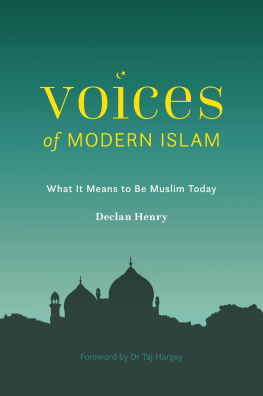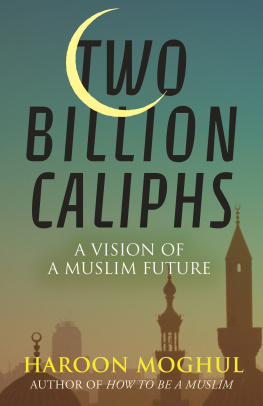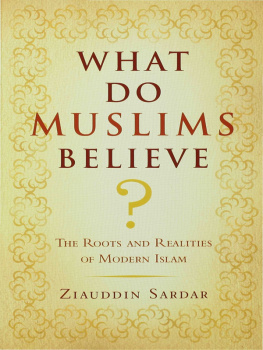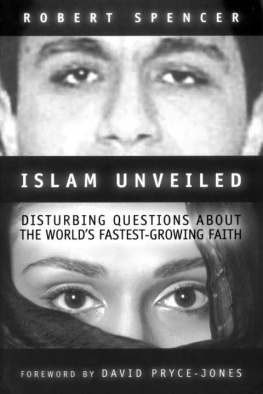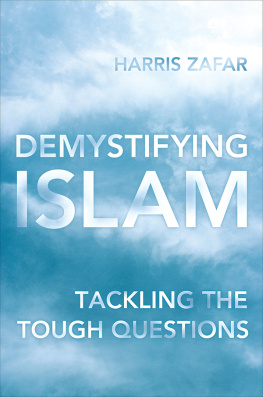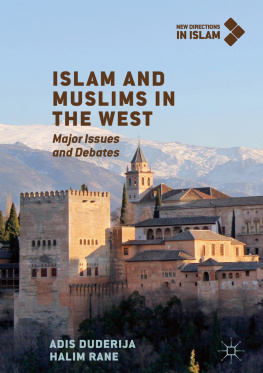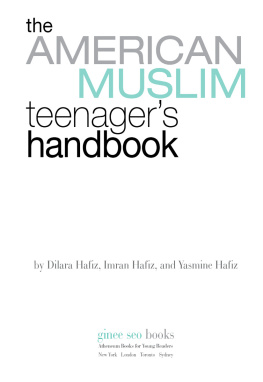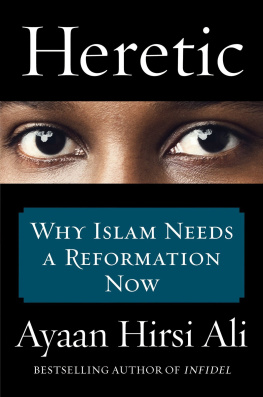Contents
Guide

Tawseef Khan is a qualified solicitor specialising in immigration and asylum law, and a human rights activist with over ten years experience working on refugee and Muslim issues. In 2016 he obtained a doctoral degree from the University of Liverpool, where his thesis explored the fairness of the British asylum system. He was a recipient of a 2017 Northern Writers Award. He is a Muslim and lives in Manchester.

Published in hardback and trade paperback in Great Britain in 2021 by Atlantic Books, an imprint of Atlantic Books Ltd.
Copyright Tawseef Khan, 2021
The moral right of Tawseef Khan to be identified as the author of this work has been asserted by him in accordance with the Copyright, Designs and Patents Act of 1988.
All rights reserved. No part of this publication may be reproduced, stored in a retrieval system, or transmitted in any form or by any means, electronic, mechanical, photocopying, recording, or otherwise, without the prior permission of both the copyright owner and the above publisher of this book.
Every effort has been made to trace or contact all copyright holders. The publishers will be pleased to make good any omissions or rectify any mistakes brought to their attention at the earliest opportunity.
10 9 8 7 6 5 4 3 2 1
A CIP catalogue record for this book is available from the British Library.
Hardback ISBN: 978 1 78649 951 6
Trade paperback ISBN: 978 1 78649 952 3
E-book ISBN: 978 1 78649 954 7
Printed in Great Britain
Atlantic Books
An imprint of Atlantic Books Ltd
Ormond House
2627 Boswell Street
London
WC1N 3JZ
www.atlantic-books.co.uk
For my brother Haseeb
And everybody out there like him
Contents
Introduction
I was fourteen years old when, during one lunch break in high school, I burst into a classroom and announced that Id become a pagan. My friends were sat on desks, huddled against a radiator for warmth in a room that we claimed as ours during break times; a room in the Science building that was musty with the smell of animals because it was home to two rabbits and two hamsters, a tank of terrapins and an albino rat. They shrugged in response and continued chatting. My confession came as no great surprise. We already had a pagan in the group, and a white witch too.
This was my first act of rebellion against Islam; against the dogmatic, observance-oriented Islam in which I was raised. My critique of Islam actually began much earlier, as an eight-yearold, when my mother first told me off for breaking my prayers to answer the phone. Precocious perhaps, maybe also unbelievable that I was criticizing religion at such a young age, but my mother had been teaching me about Islam since I was able to speak, and I was incredibly sensitive about being told what to do. When she chastised me in front of my cousin, I was so humiliated I began to privately question the very ritual I was participating in.
As I got older, the limits imposed on my relationship with Islam became clearer. I wasnt supposed to question doctrine; God had supposedly determined every aspect of our religious practice. To critique Islam, therefore, was to be a bad Muslim who was destined for hell. When I was old enough to pray independently, my mother began pushing me to perform my five compulsory daily prayers. She warned me about Gods punishment if I didnt comply. Sometimes I would pretend to fall asleep to avoid them, but she would yank off the bedcovers and send me to wash. And in the bathroom, as I sulkily cleaned my hands, my ears, my nose, my face, my arms, my neck and then my feet, I would ask myself why God wanted this. What was the point in prayer if my heart wasnt in it? Prayer was more than a series of movements showing off my religious devotion. If God refused the prayer I had broken off in order to answer the phone, then surely God would also refuse these unhappily performed prayers I was offering as a teenager?
So my frustration had been bubbling away for several years when I adopted paganism. I knew that many Muslims would have found my behaviour disrespectful, insubordinate, insulting to Allah even, but I didnt care. I needed to register my complaint with Allah. I was angry with God and felt that I had every right to be. I had been deeply unhappy for such a long time. It was not the general melancholy and malaise that teenagers experience during puberty. It was rooted in my discontent with how Islam was being framed, as something based around observance, permissibility and submission.
Today I can understand my parents decisions a little better they were trying to shape my identity in a non-Muslim landscape as best they could. They were trying to instil me with self-worth. They wanted to save me from feeling dislocated as a British-Pakistani Muslim from being caught between two worlds especially as they navigated their own feelings of disorientation living in a country where they hadnt been born. But that ended up happening anyway. Using Islam in such a way led to a crisis of faith. There was nobody to talk it over with. Protesting to God seemed like the only thing I could do.
Every protest has its critics. Maybe you would have criticized mine. Aft er all, I had no idea what paganism actually involved. Was it enough that I felt a greater connection to nature than to my community? Probably not. And to all intents and purposes, I continued to live a tangibly Muslim life. It didnt occur to me to change that. Besides, I hadnt given up believing in God altogether. I fasted (because I enjoyed it), prayed (when I couldnt get out of it) and travelled to Saudi Arabia for umrah. At the ages of fifteen and twenty-two, I performed this pilgrimage with my family. Both times, I sat inside the sacred mosque in the city of Mecca and spoke to Allah in the same way: I am stuck. I am angry with you. You know this. You know why. I prayed for a solution. But as much as I sought distance from my religious identity, to get some perspective on its place in my life, the world would not allow it.
The attacks of 9/11 occurred a short time aft er I first registered my protest with Allah. The effect was that my personal spiritual crisis began to unfurl in the shadow of a much larger political and religious one. Before I had even developed a sense of who I was as a Muslim, I was on the back foot. I felt like I was carrying a narrative what would become perhaps the defining narrative of our time of a war brought to the West by terrorists inspired and guided by radical Islam. In the years to come, I would be weighed down by this burden. It coloured my internal struggle and I could not escape it. I remember the jokes made by high-school acquaintances, where the punchline centred on me being a terrorist. How my friends laughed without hesitation, and I felt such impotence at having no comeback.
I went shopping with my mother in Manchester city centre the day aft er the London bombings of July 2005. As we walked along the high street I felt tension rising in my body. There was the distinct feeling of self-consciousness, of being monitored, of deliberation over every step in case we stoked someones anger. The latent threat of reprisals seemed to be everywhere. Mums hijab clearly identified her as a Muslim, and for those looking to blame the bombings on Islam, shed be fair game. We expected it. We had already heard about the anti-Muslim attacks on the news.


